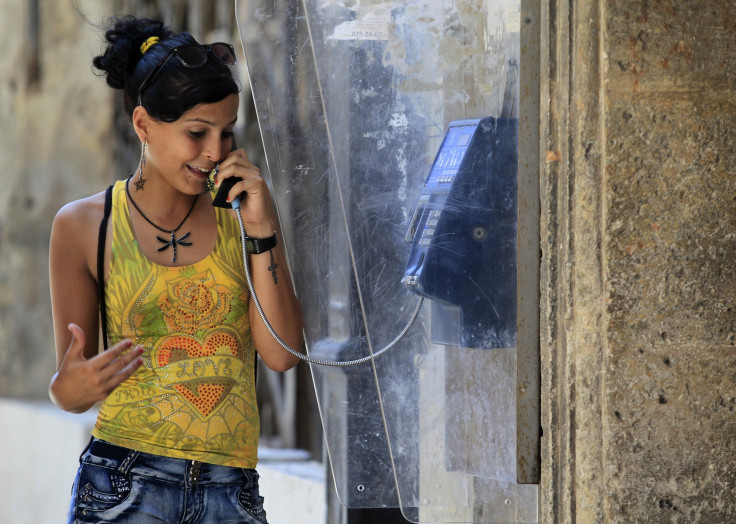Cubans Primed For Internet Update After Years Of Trying To Stay Out Of The Dark

It’s not just the beautiful cars that are old. While Cubans are avid users of social networks such as Facebook and Twitter, just a quarter of the population has access to the Internet, and that's primarily through government-controlled intranet in public cafes.
Cuba essentially has no Internet infrastructure, with an estimated 25 percent of the population paying $4.50 to access a government-controlled intranet in public cafes. But the reestablishing of diplomatic relations with Cuba after more than 50 years paves the way for U.S. telecommunications firms to sell equipment to local entities, which could make Cuba the next test case for how a third-world country catches up with the information age.
In 2012 there were only 1.21 million landline phones in the country of 11.25 million people, according to figures compiled by the CIA World Factbook. There were also 1.68 million cell phones, fewer than the estimated 1.7 million cell phones used among North Korea’s population of 25 million people.
Cuba also had 3,244 Internet hosts, where computers are connected with the Internet, good enough to rank 154th in the world. That number is comparable with the Democratic Republic of the Congo (2,515) and Burkina Faso (1,795), but the situation began to improve in 2013, when the country connected via fiber-optic cable to Jamaica and Venezuela.
“Information from the Internet gets into the country through a few individuals who do have access to the Internet -- they download pages and then spread this information around the island by USB, DVD, etc.,” Yoani Sanchez, a prominent Cuban blogger known for her opposition to the Castro regime, wrote in a Reddit Ask-Me-Anything session last year. “Information also gets in through travelers, family, etc., who visit Cuba, exiles who send information through email, SMS, phone calls or snail mail. That’s why it’s so important that Cuban exiles and those who sympathize with democracy in Cuba should support this information flow.”
How that high-speed Internet was distributed throughout the population (vs. being restricted to high-level officials and government institutions) is unclear, though it’s known that many Cubans are active on social media, particularly Facebook.
The U.S. Agency for International Development (USAID) proved as much when it revealed early in 2014 that the agency was behind the ZunZuneo microblogging service that subverted the Cuban government by making it possible to communicate via social media. Colloquially known as the “Cuban Twitter,” ZunZuneo quickly attracted 40,000 users with mundane messages before becoming more political as the numbers of users increased.
“We should gradually increase the risk,” USAID proposed in a government document obtained by the Associated Press. The agency sought to organize “smart mobs” in “critical/opportunistic situations and not at the detriment of a commercial enterprise.”
While denying that the action was part of an espionage campaign, USAID initially planned to woo 200,000 users. That didn’t happen because of increased scrutiny from the Castro administration, but the ambition surrounding the plan makes it clear that the U.S. was aware of at least a moderately independent Internet lurking beneath the government’s radar.
Skype, pornography and news outlets that publish information critical of the Castro government could remain blocked even when more American and international technology begins flowing into Cuba. Yet the increased trade will make it all the more difficult to censor Web activity, according to Sanja Tatic Kelly, a project director for Freedom on the Net, part of the American nongovernmental organization Freedom House.
“Cuba remains one of the most restrictive countries in the world in terms of Internet freedom,” she told Agence France-Presse. “Rather than relying on the technically sophisticated filtering and blocking used by other repressive regimes, the Cuban government limits users’ access to information primarily via lack of technology and prohibitive costs.”
© Copyright IBTimes 2024. All rights reserved.





















